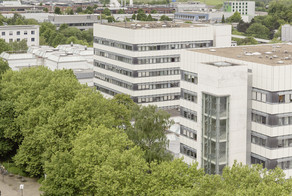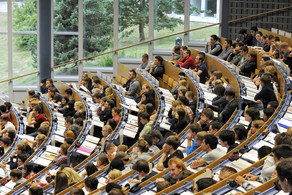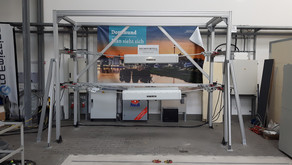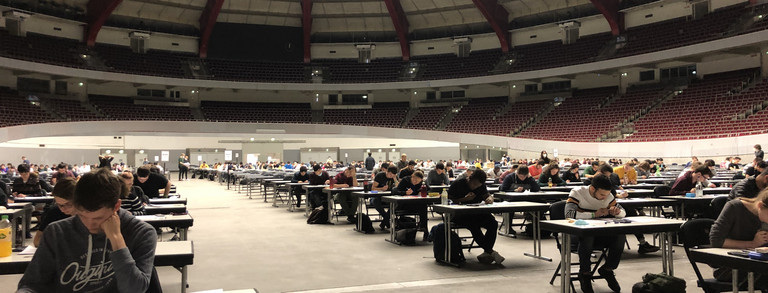Electrical engineering and information technology - paving the way for a sustainable future
News & Änderungen
22.03.2024 Update: New lecture schedule, moodle room, and LSF entry for summer semester 2024 (see below)
Organisation
Registration and Format: Registration for the course is done centrally via the LSF (Link zum LSF-Raum). Until further notice, the course will take place in presence. Current changes will be announced in Moodle in due time.
Examination formalities: For a certificate of attendance (2 LP), attendance will be checked (maximum 3 absences). The module examination is a multiple-choice exam. For the module examination, 3 LP are acquired. It is only possible to acquire a certificate of attendance (2 LP) or a certificate incl. module examination (3 LP). It is not possible to acquire 5 LP by combining a certificate of attendance and a module examination. The date of the exam for the lecture series will be announced later.
Lecture material: Lecture notes, exercise sheets and other lecture materials can be found in the Moodle workroom Moodle-Arbeitsraum. Please log in with your UniMail account.
Language: English
Time: Tuesdays 16:00 - 18:00 Uhr
Room: SRG1-2.009
Start: 09.04.2024
Content
Subject module with 3 CP, offered in SS from SS 2022 onwards.
The module is designed as a specialized module for the Studium Oecologicum with a broad range of electrical engineering and information technology topics that contribute as building blocks for a sustainable future. Starting from an overall view of energy systems and how they can be made CO2-neutral in the future, aspects of climate research, climate economics, energy efficiency and intelligent applications in the fields of electricity, heat and mobility are considered. Power grid technologies, as well as information technology and networks, are used as enablers for a variety of efficient and automated efficiency solutions.
Students from all disciplines will get a broad overview of innovations to shape a sustainable future. The module is suitable for students from all disciplines as part of the Studium Oecologicum as a specialized module. For Electrical Engineering and Information Technology students, it is a complementary module that introduces the breadth of the faculty's activities on sustainability.
The concept is based on 10 double lessons.
Topics
Nr. | Topic block | Lecture | Presenter | Date |
1 | Energy Systems | The CO2-neutral overall energy system - potentials of renewable energies and their efficient use in all sectors for the energy transition | Prof. Dr. Christian Rehtanz | 09.04.2024 |
2 | Efficient Technologies | Energy-efficient optical transmission technology for future photonic data transport networks | Prof. Dr. Peter Krummrich | 16.04.2024 |
3 | Efficient Technologies | Sustainable communication networks: a multi-dimensional approach for holistic resource-efficiency considering spectrum, energy and softwarization | Prof. Dr. Christian Wietfeld
| 23.04.2024 |
4 | Climate research | Technologies to quantify actual greenhouse gas emissions - Ground truth data for climate research | Prof. Dr. Stefan Palzer | 30.04.2024 |
5 | Building sector | The energy transition in the building sector - how to achieve climate neutrality by 2045? | Dr. Sibylle Braungardt | 07.05.2024 |
6 | Building sector | Smart Home and Smart Building - Intelligent Systems for Reducing Energy Consumption | Dr. Wolfgang Endemann | 14.05.2024 |
7 | Efficient Technologies | High-voltage direct current transmission for bulk-energy transfer - technology, equipment and applications | Prof. Dr. Frank Jenau | 21.05.2024 |
8 | Efficient Technologies | The transformation path of a distribution system operator to “net zero” | Prof. Dr. Lars Jendernalik | 28.05.2024 |
9 | Transport sector | Components and Systems for Electromobility | Prof. Dr. Stephan Frei | 04.06.2024 |
10 | Transport sector | Electromobility as an Efficiency Driver - Potentials and Hurdles in Passenger and Freight Transport | Prof. Dr. Christian Rehtanz | 11.06.2024 |





